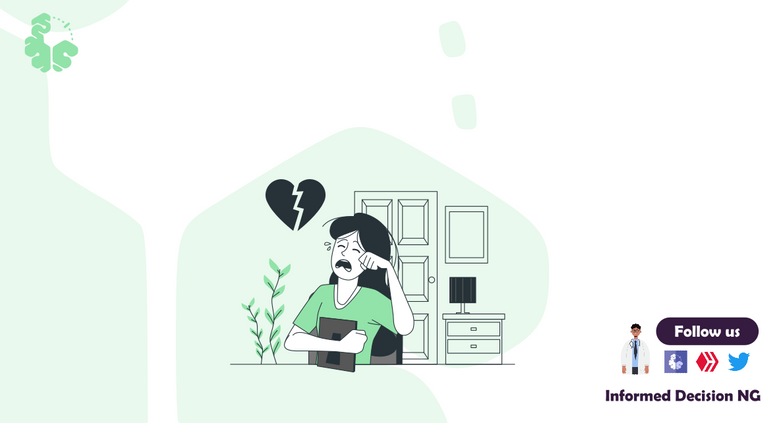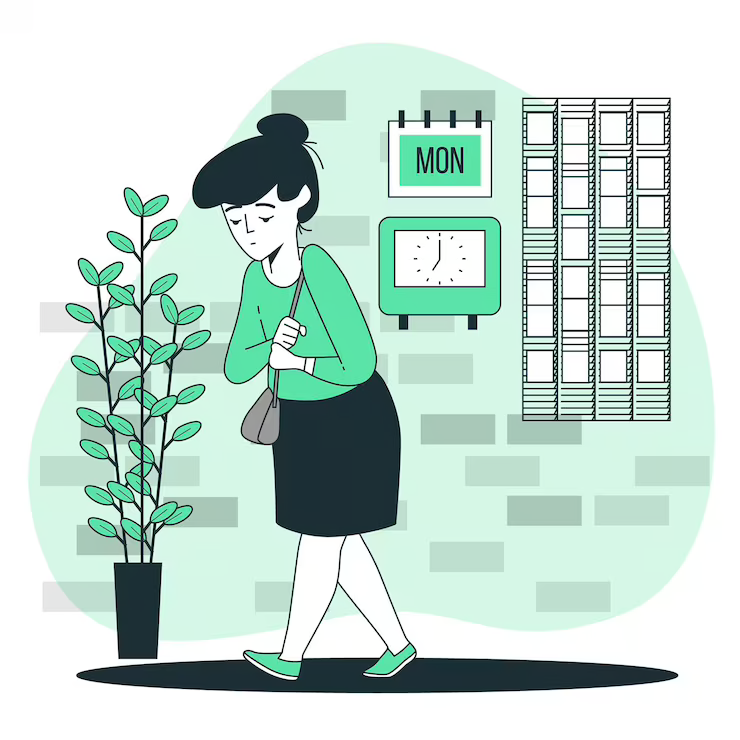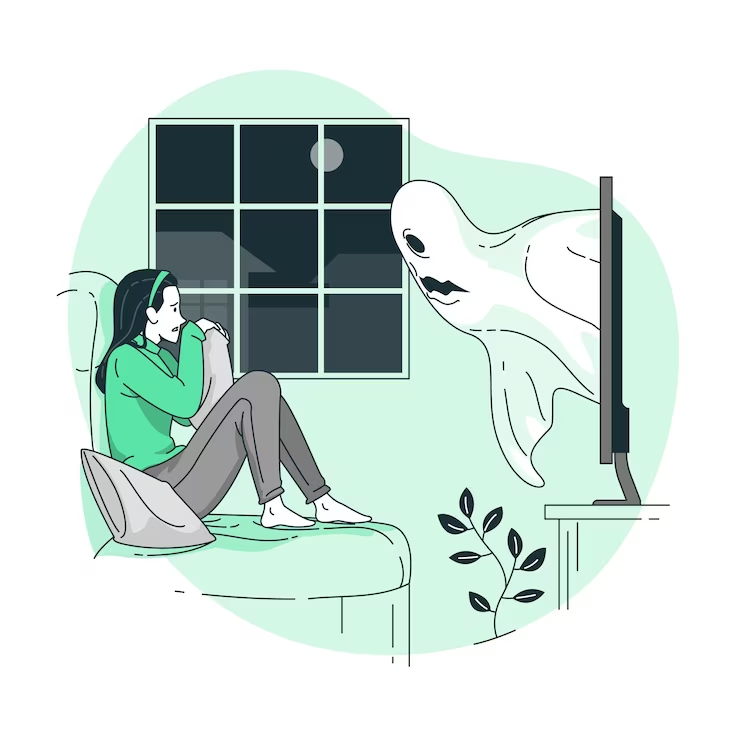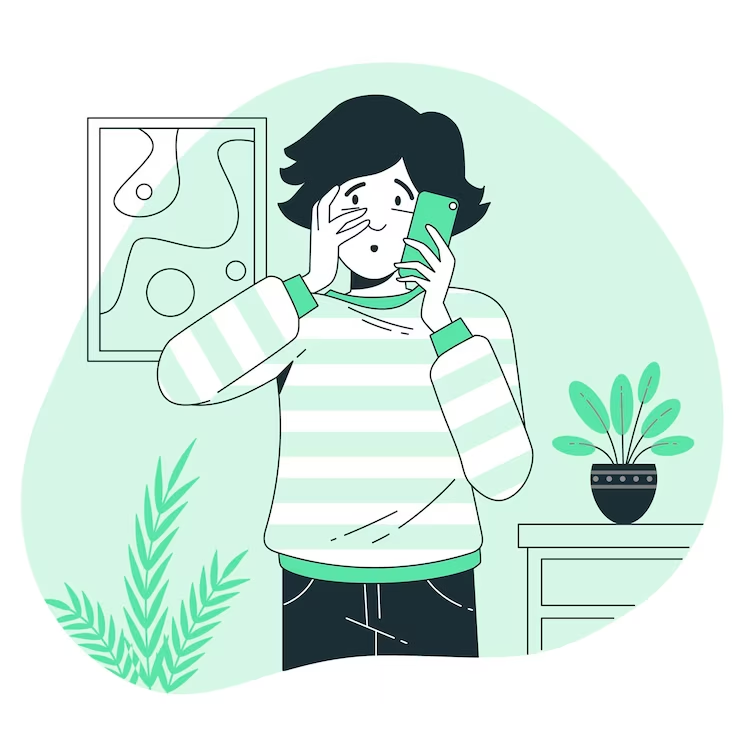Your Regret, Your Breakthrough: Understanding and Coping with Complex Emotions

Woman illustrations by Storyset
Some things happen, and we never forget their impact on our lives. We think about them every day and night. "I should have registered for that program," "I should have spoken up," "I could have been more direct," "That was not how I was raised," or "I should have tried harder."
You feel the consequences of your actions as it plagues your mind. You feel it on a biological level too. You feel your heart beating in your chest, you hyperventilate, and you sweat. You are angry at yourself for not taking action.
Sometimes you sit there with thoughts of how better your life would be if you took action. It's a fool's game if you are well aware. You only know what exists today. You don't know what would have happened if you altered the past. But you play the game with yourself because at some point, when you were not aware, you made a standard for yourself, and you chose not to act on it.
You have to pick your poison in life; it's poison either way. You either pick the pain of regret or the pain of discipline. You can't have the best of either of them.
You cannot have a carefree life without regret from time to time, and you cannot have a life of purpose and personal achievements without discipline.
"If I had known,"

Woman illustrations by Storyset
Regret is such a complex emotion. We only feel it when we reflect on our past decisions or actions and feel disappointment, dissatisfaction, or remorse about the way things turned out. Anyone at different points in their life can struggle with the uneasy emotions that come with regret. It cuts across every age, culture, and context, and it can have positive and negative effects on how we experience life.
Regret itself is counterfactual, meaning the subject thinks about things that might have happened if a different pathway was taken in the past. The problem with this is that there are so many variables that could affect what would play out.
The weird thing about these calculations is that our brains love them so much. Our brain thrives in such an environment of coulda, woulda, shoulda. We spend our time comparing reality with the myriad of hypothetical alternatives.
The best outcome of having regret (I know that sounds wrong, but bear with me) is that we never end up in the same situation we are in if the same opportunity presents itself, and it helps us readjust our goals and expectations.
Regret, however, can lead to distress and rumination over irreversible life events like missed opportunities, lost relationships, or major career decisions. You may feel emotions of guilt, shame, or blame yourself, breaking your confidence to try in the future. Regret may cause thoughts and behaviors such as resentment, envy, or aggression towards others who we perceive as having achieved what we missed out on.
What it feels like

Woman illustrations by Storyset
Besides the psychological implications of regret, we also get the bill on our bodies. There are areas of the brain that have been mapped out and noted to be involved with feelings of regret, namely the ventromedial prefrontal cortex, the anterior cingulate cortex, and the striatum.
Big names for a big feeling, wouldn’t you agree? These areas of the brain are responsible for cognitive and affective processes like making decisions, feelings of reward, emotional regulation, and self-reflection.
The ventromedial prefrontal cortex is important for evaluating potential outcomes from different actions and contemplating their emotional value, and the anterior cingulate cortex detects and resolves conflicts between competing goals and values.
While all this is going on, the sympathetic nervous system sets the tone for the whole body, also increasing the heart rate, blood pressure, and cortisol levels (stress hormone). This is our body's response when we are dealing with frightening situations, giving you an insight into how our body processes what we are going through.
There is also new research on how regret may be linked to serotonin and depression.
Okay, so you didn’t know

Woman illustrations by Storyset
How could you know? Aren’t you supposed to be human? For some reason, you think the mind – including yours – is that simple, well, it is not.
There are key features that play a role in how we deal with regret, how long and how intense the process can be for us. These are factors such as personality traits, coping strategies, and social support.
People who are more prone to perfectionism, anxiety, or self-criticism are more likely to experience regret and its negative consequences.
People who tend to deal with regret better are those who have strong social connections, better adaptive coping skills, and a sense of purpose. They may be better able to cope with regret and find meaning through it.
Did you make a mistake? Are you struggling with conditions that are out of your control? Did you learn something from your last experience with regret? Was it your fault? Do you have trouble letting go of the past?
You can send me a message on WhatsApp at +2348134530293, and we can have a conversation, or you can speak with a licensed therapist.
Conclusion
In conclusion, regret is a complex emotion that affects everyone at different points in their lives. It can have both positive and negative effects on how we experience life, and it is important to understand how to deal with it.
While regret may lead to distress and rumination over irreversible life events, it can also help us readjust our goals and expectations, providing an opportunity for growth and self-improvement.
The way we deal with regret is influenced by factors such as personality traits, coping strategies, and social support. Those who have better-coping skills and a sense of purpose are better equipped to handle regret and find meaning through it.
Ultimately, regret is a part of life, and it is up to us to choose whether we let it consume us or use it as a catalyst for personal growth and change.
Have you ever experienced regret? What was the situation, and how did it make you feel?
Do you tend to dwell on past mistakes, or are you able to let go of them easily? How do you cope with regret?
The post mentions that regret can have positive and negative effects on how we experience life. In your opinion, can you think of any positive effects of regret? How about negative effects?

Oh we all have made mistakes in life that we cannot forget easily. Reading this blog just reminded me of my Tough Time and my glory days but you know what we still survive and jubilate during that time. Moving on in life is the best gift you can to yourself. Your blog is powerful as I got to know some terminology from it. I love your write up. Thank you. Should incase I have someone that is finding it difficult to move on, you contact would be the next drugs☺️☺️☺️.
Thanks for the kind words, I am glad you got something out of it. I enjoy uplifting people.
You're welcome. Keep up with the good work okay
Thank you, I will!!
Thanks for your contribution to the STEMsocial community. Feel free to join us on discord to get to know the rest of us!
Please consider delegating to the @stemsocial account (85% of the curation rewards are returned).
You may also include @stemsocial as a beneficiary of the rewards of this post to get a stronger support.